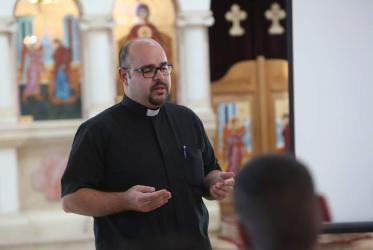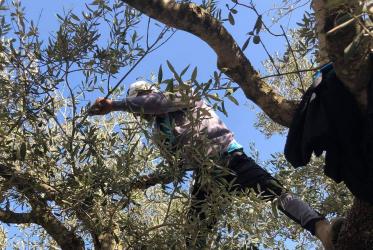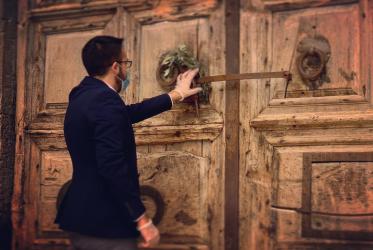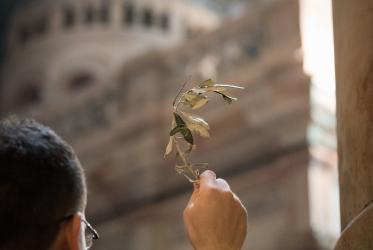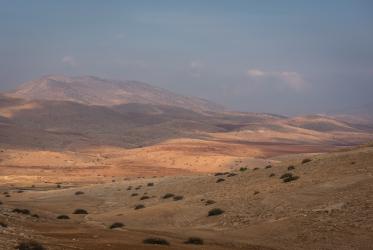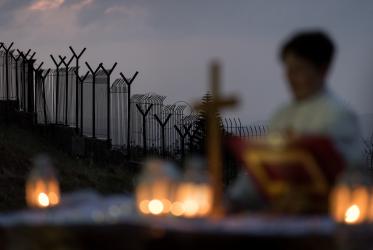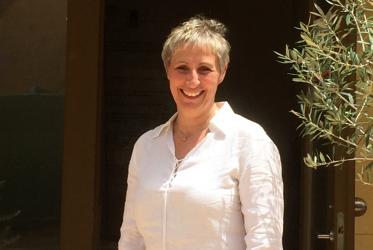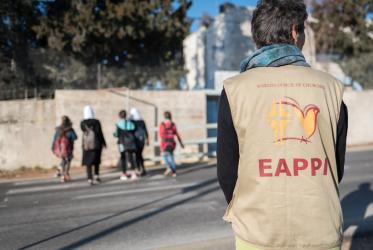Displaying 81 - 100 of 182
In Palestine, “God honored this olive tree”
12 November 2020
“Your life is in peace when you collect the olives"
29 October 2020
“Olive trees are holy signs of peace, older than anyone”
22 October 2020
“Stand together praying for just peace in Palestine and Israel”
14 September 2020
Jerusalem churches send Easter message of Hope
16 April 2020
WCC reiterates standpoints against antisemitism
20 January 2020
World Week for Peace highlights humanity and equality
15 September 2019
Dr Saïd Ailabouni: God is on the side of rejected, oppressed, occupied
12 September 2019
